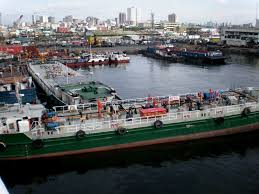Breaking
Port of Manila; ‘Extortion outside, inside, on the roads,” official reveals
MANILA, Philippines – Cabinet Secretary Rene Almendras says he is now in a position to author a handbook on the extortion in the Port of Manila.
“After this I can already write a handbook on extortion,” Almendras, said at a press briefing in Malacañang yesterday.
Almendras made these remarks as he announced that traffic port congestion has been eased, due to certain measures, such as the lifting of city of Manila’struck ban.
He admitted, however, that traffic in the vicinity of the Manila International Container Terminal and Manila South Harbor remains heavy, due to the long lines created by truck haulers waiting their turn for shipment processing.
He likewise stressed that he sees no need to extend the two-week special privilege afforded to companies and truckers in order for them to clear their cargo out of the Port of Manila without being apprehended.
Almendras, who heads the Cabinet Cluster on Port Congestion, lamented that there were other problems – such as corruption, extortion and bribery – besieging the Port of Manila that need immediate action.
He cited the illegal activity of certain individuals collecting P500 to P1,500 each from truckers before allowing them to enter the port; something which the government task force on port congestion discovered while studying the situation.
“It’s very probable that some employees in (the Bureau of) Customs are part of it. So we are going to do something about it. There is extortion outside, there is extortion inside, there is extortion on the roads,” Almendras said.
Almendras pointed out that the Bureau of Customs (BOC) is in the process of creating new guidelines on the processing of cargo in order to curtail corruption and foster transparency.
From their end, the task force is targeting to improve the system of clearing shipments, Almendras said; as he noted that the current system is plagued with extortion.
“Yesterday I found out that sometimes there are even… bidders who pay up to P2,500. You don’t have to pay for that,” he said, citing the procedure of some dishonest individuals who demand a bribe (minimum of P500) for the processing of shipment clearing.
To resolve these problems, Almendras said that the Department of Trade and Industry (DTI) has committed their help, and that there would be a meeting with all the importers to inform them on how to fight abuse and corruption.
Despite widespread corruption, Almendras remained optimistic as to the resolution of the problem: “Things are now improving,” he said.






















